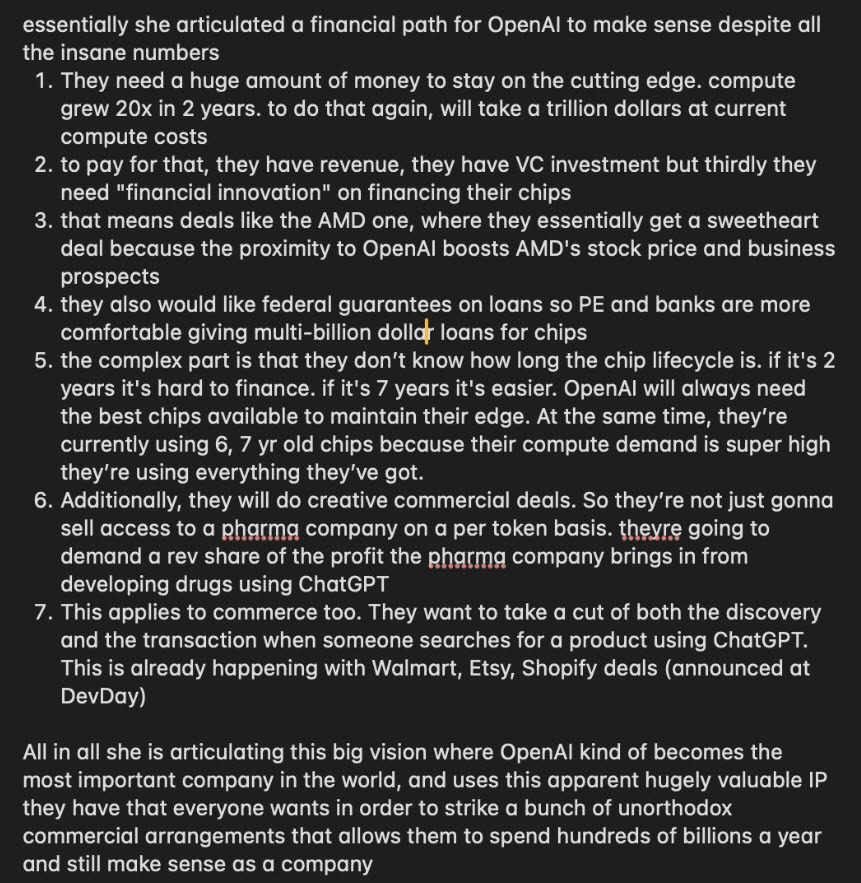No one knows what the economics of massive investments in computer chips for AI will reap. That's the takeaway from comments from OpenAI's CFO that were cited today by a WSJ reporter.
In addition, the ways they are planning to pay for it may not align with anything that users would prefer.
The battle is to stay on the cutting edge and OpenAI floated government loan backstops in order to do that, setting off a discourse about 'AI bailouts' that's probably already poisoned that well. Sam Altman just weighed in on that.
What's clear is that it's an arms race and no one really understands if there will be a return on the investments. The company said it doesn't know how long the useful lifecycle of the chips are. If it's two years, it's hard to finance, if it's seven years, it works.
They note that they're currently using some 6-7 year old chips because the demand is so high but they're always going to need to have the best available chipset.
To me, this sounds like a big red flag that even the people at the top are flying blind and desperate to win on technology, no matter the cost. With several companies fighting that same battle, eventually there will be losers and at least some of the buyers for Nvidia chips will dry up. At the same time, the entire market and demand for AI could just mean that the winners spend more.
This whole dynamic has led to the recent moves to vendor financing that have the market concerned about circular investments that don't really add up.
In addition, the CFO outlined 'creative commercial deals' where they demand payment for discovery and the transaction. That's another way of saying that Wal-Mart -- who they're already partnered with -- will show up in your searches and chats because they've paid to be there, not because they're the best. That's certainly not in the customer's best interest and the whole thing starts to look like Google with a different set of clothes.
A more novel idea they're working on is in pharma where they could partner with companies to discover drugs on the condition they get revenue from drugs developed from it. That could bring in some hefty sums but the timelines on drug approval are so long that it's a cash burn for many years (on compute) before you get any kind of return. Moreover, if you can crank out drugs with this generation of GPT, why wouldn't future LLMs be able to find better ones? That would shorten the useful lifecycle of whatever drugs they might help to develop.
Here are the WSJ notes:


